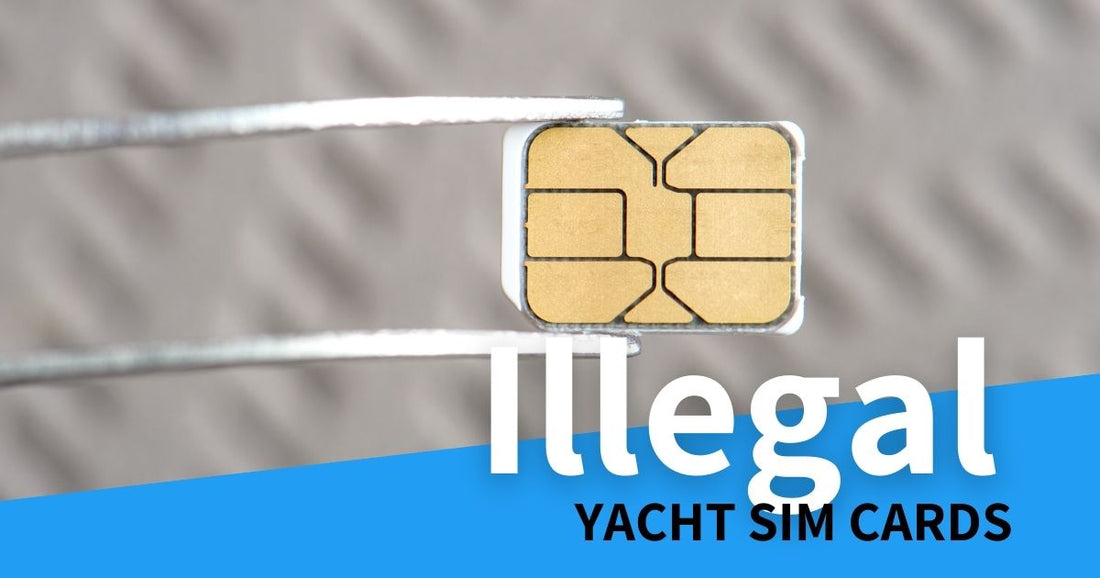Black market legacy unlimited yacht SIM cards

If you’re a member of any yacht groups on Facebook you’ll likely have noticed an increase in companies offering “Unlimited” internet plans for yachts in the US and Caribbean. I was intrigued with these plans as they promise unlimited data, no fair usage and zero speed throttling. The thing that really hooked my interest was the unbelievable price. $500 per month for an unlimited USA data contract seems too good to be true. Guess what? It is too good to be true!
I completed some in-depth research and even chatted with some network providers about these plans (and the companies selling them) and the responses gave me shudders.
Once upon a time, when being social meant physically meeting people and when mobiles had aerials sticking out the top, a new technology broke free that allowed people to use their phones for more than calling and texting.
The internet was still relatively young, reasonably ad-free and unmometised. It was a golden era before true digital marketing, memes and photo filters.
As the years progressed, YouTube became popular and more people discovered the benefits of instant access. With a leap in new customers, the networks (such as AT&T) decided to sell unlimited data plans. Data consumption wasn’t particularly high - emailing and browsing the web were the main uses. Sure, streaming video was available, but the quality (frame rate) was so low that it didn’t use a huge volume of data. It was a magical time for the network operators and the customer alike - everyone was happy.
The years progressed – demand for faster access increased, apps emerged, video quality improved. Over the past decade, the need for speed has driven technology advances at a prolific rate - this in turn created new opportunities for marketing and entertainment. Higher video quality started to pose a problem for networks that had unlimited plans. Cell towers network architecture was struggling with capacity and these plans were inevitably withdrawn from purchase. Customers that had already purchased an unlimited plan however, were able to keep using these plans for as long as they kept paying for them in accordance with the terms of service. Plans of this type are known as "legacy" of "grandfathered" plans. Little did the networks realise that this would create future problems...
Why Unlimited legacy plans are a problem
As legacy customers changed to a different network operator and cancelled their contracts, unlimited legacy plans became a rarity. Rare items increase in value, and the SIM card belonging to a legacy Unlimited plan did the same. Companies looking to make a quick profit started buying up these SIM cards and reselling them as an unlimited SIM card. This introduced a black-market culture for the legacy unlimited plans with people selling on Reddit, eBay and Craiglist.
Unlimited legacy plans and yachting
Big data users that have money to burn became tempting targets. A good majority of unlimited legacy plans now exist in the yachting sector. Dodgy marine data providers purchase these legacy cards and re-sell them illegally to yachts. The networks became aware of the black market for these plans and started paying closer attention to the average data consumption, location of use and hardware being used. If a SIM card is being used to power a vessels internet, connecting to different cell towers and running into terabytes of data every month, it’s obvious that the original legacy user resold the plan. Inevitably the plan is cancelled, leaving the yacht without internet.

